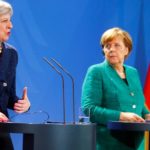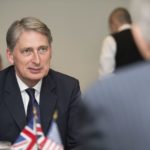
The civil war in Sudan has once again brought the differing responses to humanitarian emergencies to the forefront of discussions. Namely, the way in which the world seemingly doesn’t respond to all crises equally, suggesting some lives are valued more than others.
The UN health Chief Dr Ghebreyesus recently highlighted the disproportional responses. He attributed the lack of attention to certain crises to race, stating the world doesn’t give equal attention to black and white lives. This has been evidenced by the lack of global interest in the conflict in Sudan. Not only has there been a lack of media attention, but the international community’s policies and efforts have also differed. This is especially significant in comparison to other crises we are witnessing. For example, the greater volume of aid given to Ukraine in comparison to other crises occurring at the same time, notably Tigray, Yemen, Afghanistan and Syria. The International Crisis Group also conveyed the fear that the diplomatic efforts in Sudan were “lacklustre”. The differing responses highlighted here reveal a hierarchy where lives in some countries are deemed more important than those in others.
One of the most clear and stark examples of the different treatment is in the frameworks which were put in place in the UK for those fleeing conflict and persecution in Afghanistan and Ukraine. When the UK opened the Afghan citizens resettlement scheme in 2022, the scheme had 3 pathways designed to offer protection and support for those fleeing persecution. However, the scheme denied refugee status to the majority of Afghans. This meant they faced even greater difficulty in bringing their families to the UK, including high costs and certain requirements like specific level of income, or English language proficiency. In comparison, the UK added Appendix Ukraine to the Immigration Rules, which included family and home schemes. These policies enabled the sponsorship of extended families to come to the UK for free. This support is vastly different to that of the Afghans. Therefore, the frameworks established labels regarding the different groups, with some being seen as ‘deserving’ and others ‘undeserving’ of protection and extra support.
The labels created by these policies have arguably mirrored and compounded public attitudes. A poll by YouGov about refugees coming into the UK and staying as they flee conflict found that 71% of people believed refugees should be allowed to do so. The poll then specified whether the refugees were Ukrainian or Afghan and the results showed a divergence in opinion. 70% of those asked agreed Ukrainian refugees should stay, dropping to 50% agreement in regard to Afghans. To summarise, the UK public has itself created and characterised certain people of being more deserving of protection. There has also been research into why this occurs and what can be done to mitigate its effects. This research is key to creating a more inclusive response to humanitarian emergencies.
Overall, the point made by Dr Ghebreyesus that the world doesn’t treat all of the human race the same, succinctly summarises the landscape of responses to humanitarian emergencies at this time.
Edited By: Evangeline Shankland
Image: Ebola Virus Disease outbreak in the Democratic Republic of Congo Press Conference, 2018 // CC BY-NC-ND 2.0



Average Rating